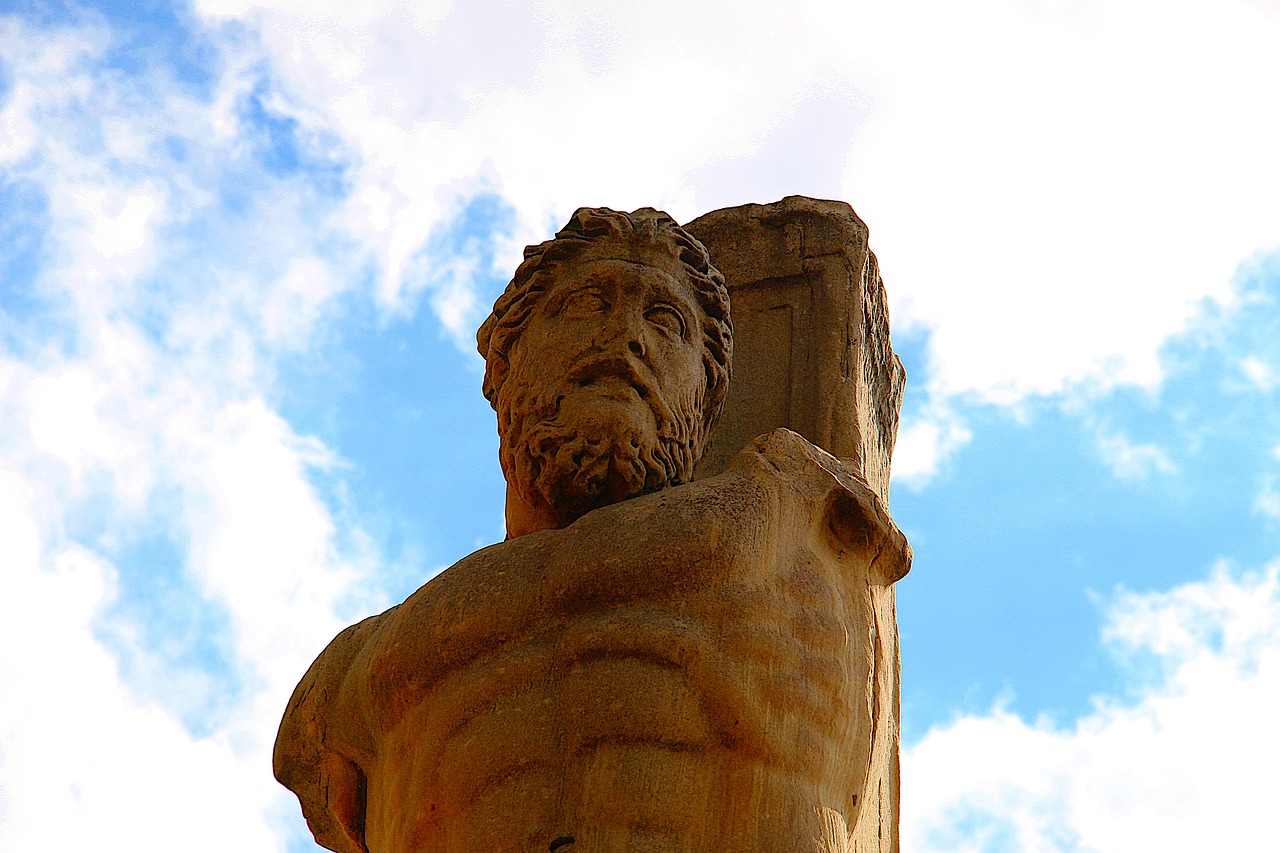Zeus, the predominant deity in ancient Greek mythology, is a sky and weather god and is synonymous with the Roman god Jupiter. His name likely shares roots with the ancient Hindu sky god Dyaus, as found in the Rigveda. Known as a formidable figure who wielded thunder and lightning, Zeus’s primary weapon was the thunderbolt, and he was revered as the protector and ruler of both mortals and deities.
The legends surrounding Zeus include a poignant tale about his father, Cronus, king of the Titans. Fearing a prophecy that one of his offspring would overthrow him, Cronus devoured his children immediately upon their birth. Rhea, his wife, managed to save Zeus by hiding him away in a Cretan cave, swapping him for a stone wrapped in swaddling clothes. Here, the infant Zeus was cared for by Amalthaea, a nymph or possibly a she-goat, and watched over by the armed Curetes, warriors who thwarted the infant’s cries with the sound of clashing weapons. Once Zeus matured, he rallied a revolt against the Titans, ultimately toppling Cronus, possibly with the help of his brothers, Hades and Poseidon. This act divided the dominion of the world among the three.
As the supreme celestial deity, Zeus was instrumental in leading the gods to victory over the Giants, who were offspring of Gaea and Tartarus, and he proficiently quelled several insurrections from his fellow gods. According to the poet Homer, Olympus, the highest peak in Greece, became the divine residence for Zeus and the pantheon’s other gods. From his lofty throne, Zeus was believed to oversee the human realm, overseeing actions and dishing out rewards for virtue and consequences for vice. He embodied justice, closely associating with his daughter Dike, who represented fairness, and he served as a guardian of cities, homes, property, and all who sought refuge or assistance.
Zeus’s reputation for romantic entanglements often incited conflict with his queen, Hera. He carried on numerous affairs with both divine and mortal women, frequently transforming into animals to pursue his romantic interests. Noteworthy among his progeny are Apollo and Artemis, born to the Titaness Leto; Helen and the Dioscuri, from Leda of Sparta; Persephone, through Demeter; and Athena, who miraculously emerged from Zeus’s own forehead after he consumed the Titaness Metis. Other notable offspring include Hephaestus, Hebe, Ares, and Eileithyia with Hera, and Dionysus with Semele.
Though revered as the all-powerful overseer of the pantheon, the universal nature of Zeus sometimes overshadowed his significance compared to regional gods like Athena and Hera. His presence adorned homes with altars to Zeus Herkeios, the Guardian of the House, and Zeus Xenios, the God of Hospitality. Yet, it wasn’t until the late 6th century BCE that Athens saw the construction of a temple dedicated to Zeus, even after Hera’s temple was erected at Olympia, which predated it.
Artistically, Zeus is typically depicted as a mature, towering figure adorned with a beard, symbolizing his dignity and authority. His thunderbolt and eagle remain his most recognizable emblems.



